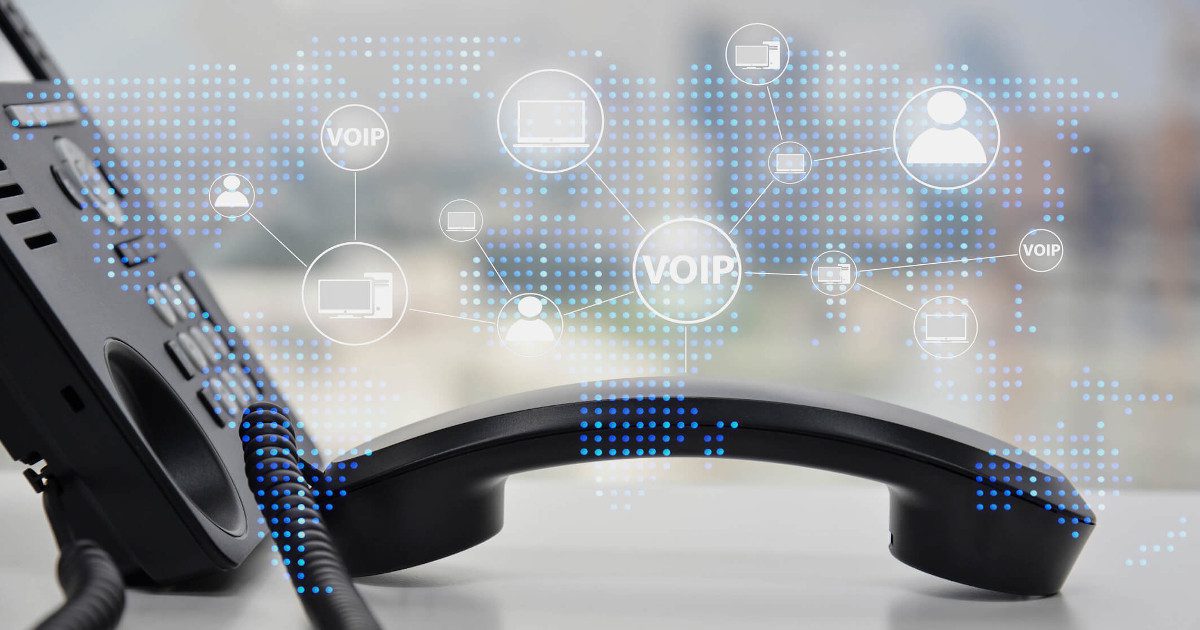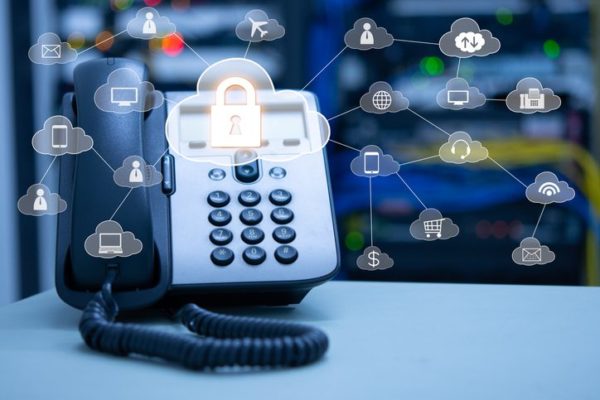Over the last few months, cybercrime has continued to dominate the headlines. In late September, VOIP.ms, a Canada-based VoIP provider, experienced a massive ransom distributed denial of service (DDoS) attack, which impacted tens of thousands of customers in over 124 countries. High-profile VoIP cyberattacks like this one have thrust VoIP security into the spotlight. If your company uses VoIP technology, consider implementing these security protocols to keep cybercriminals at bay.
What You Can Do to Improve Your VoIP Security
Use Strong Passwords
Many VoIP devices and interfaces have pre-set passwords that hackers can find with a routine Google search. And, because most phone web interfaces do not use automatic lockouts, cyber attackers can bombard them using keygen passwords.
After buying new VoIP devices, change the password immediately. To improve VoIP security, make sure your password is a strong one that includes letters, numbers, and special characters.
Use a Firewall to Close Port 80
VoIP phones on a local area network must connect to ports to access the internet. Router ports are numbered between 0 to 65535 (many ports are used for specific services).
One of the most vulnerable ports to hackers is port 80. It supports HTTP traffic, which is what is used on most websites as well as your phone’s web interface.
If left open, your VoIP phone’s web interface will have a public IP address. Anyone on the internet will be able to access it, just like a traditional website. To maximize VoIP security, keep port 80 closed.
Disable Phone Web Interface
Your VoIP’s phone web interface allows you to manage all sorts of properties, including:
- Call settings
- Account registration
- Network and SIP settings
- Codecs
This interface can also be used to download a backup configuration of the phone to include plain text usernames and passwords. Your VoIP phone’s web interface is one of the most vulnerable points of entry. Hackers can use it to remotely manipulate your business’ phone system for fraudulent purposes.
Enable Network Address Translation (NAT)
Network Address Translation (NAT) is a router feature that gives your VoIP devices a private IP address that is only visible on your local area network (LAN). This type of IP masking creates an effective barrier between phone and open internet traffic.
If a hacker cannot discover your device’s IP address, they will not be able to manipulate it remotely. By using NAT, you will eliminate the risk of ghost calls or other recon techniques.
Use End-To-End Encryption
VoIP security and encryption go hand-in-hand. Your VoIP service should support transport layer security (TLS) or secure real-time transport protocol (SRTP) encryption. Encryption is the best way to protect sensitive and confidential conversations from being intercepted by a hacker.
By using TLS or SRTP encryption, your conversations will be 100 percent private, with no risk of plain text voice or data leaks.
Reach Out to Us for Expert IT Assistance
With cyberattacks on the rise, it is more important than ever to protect every aspect of your business’ networks, especially your VoIP systems. By following these helpful security tips, you can minimize your company’s risk of becoming a victim. But, if you would like to receive professional assistance and guidance, reach out to the IT experts at TCI Technologies.







